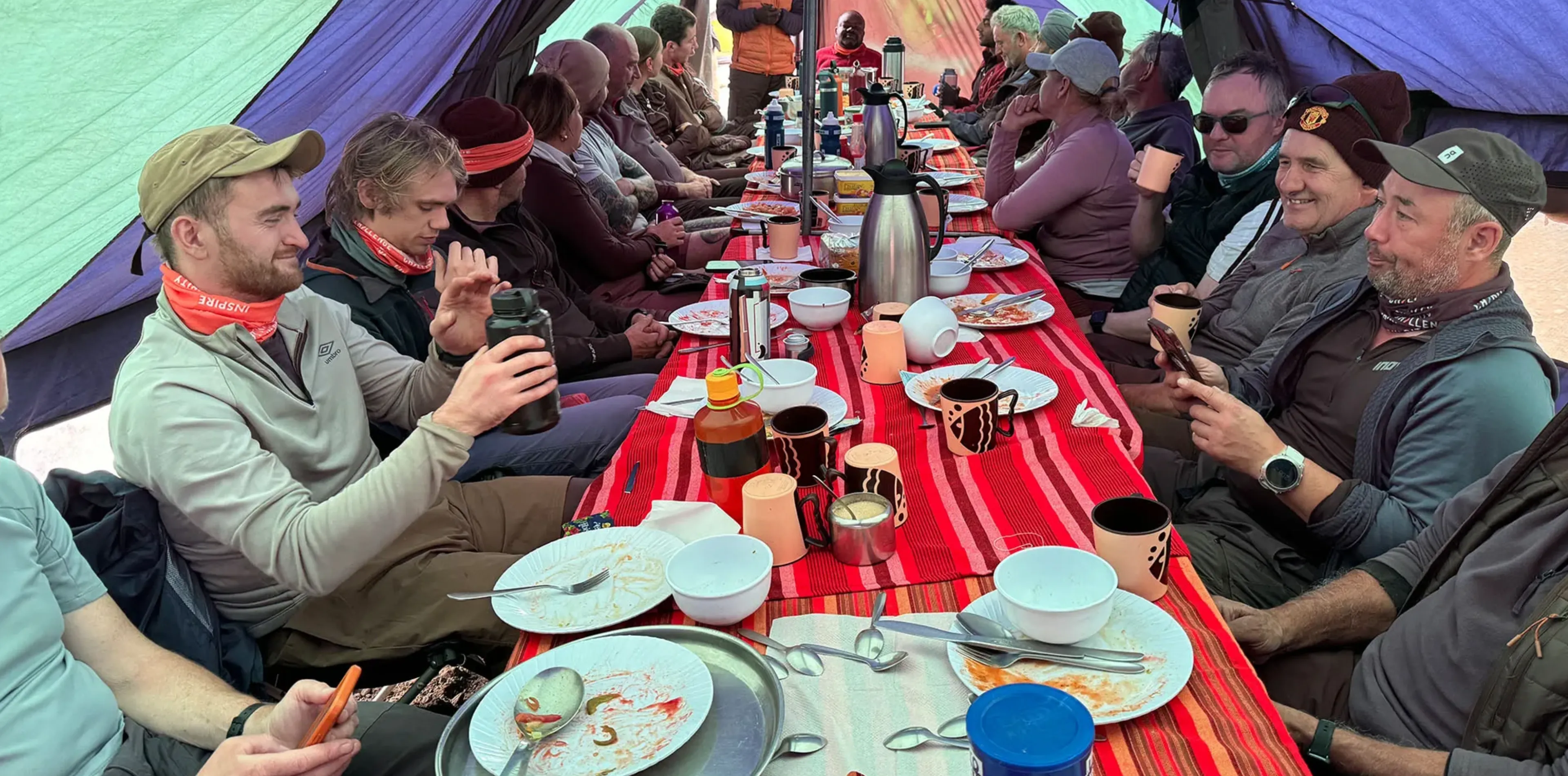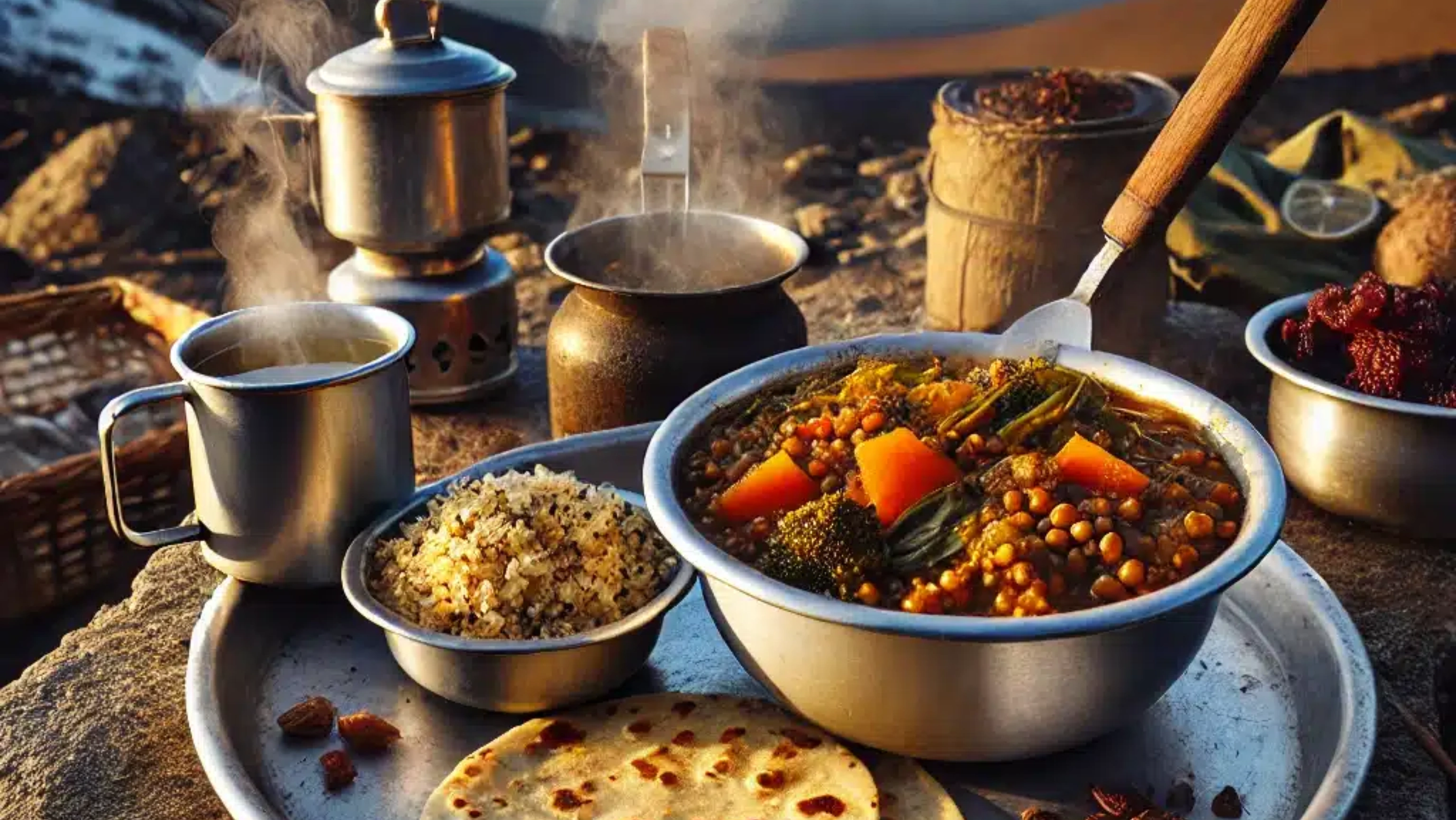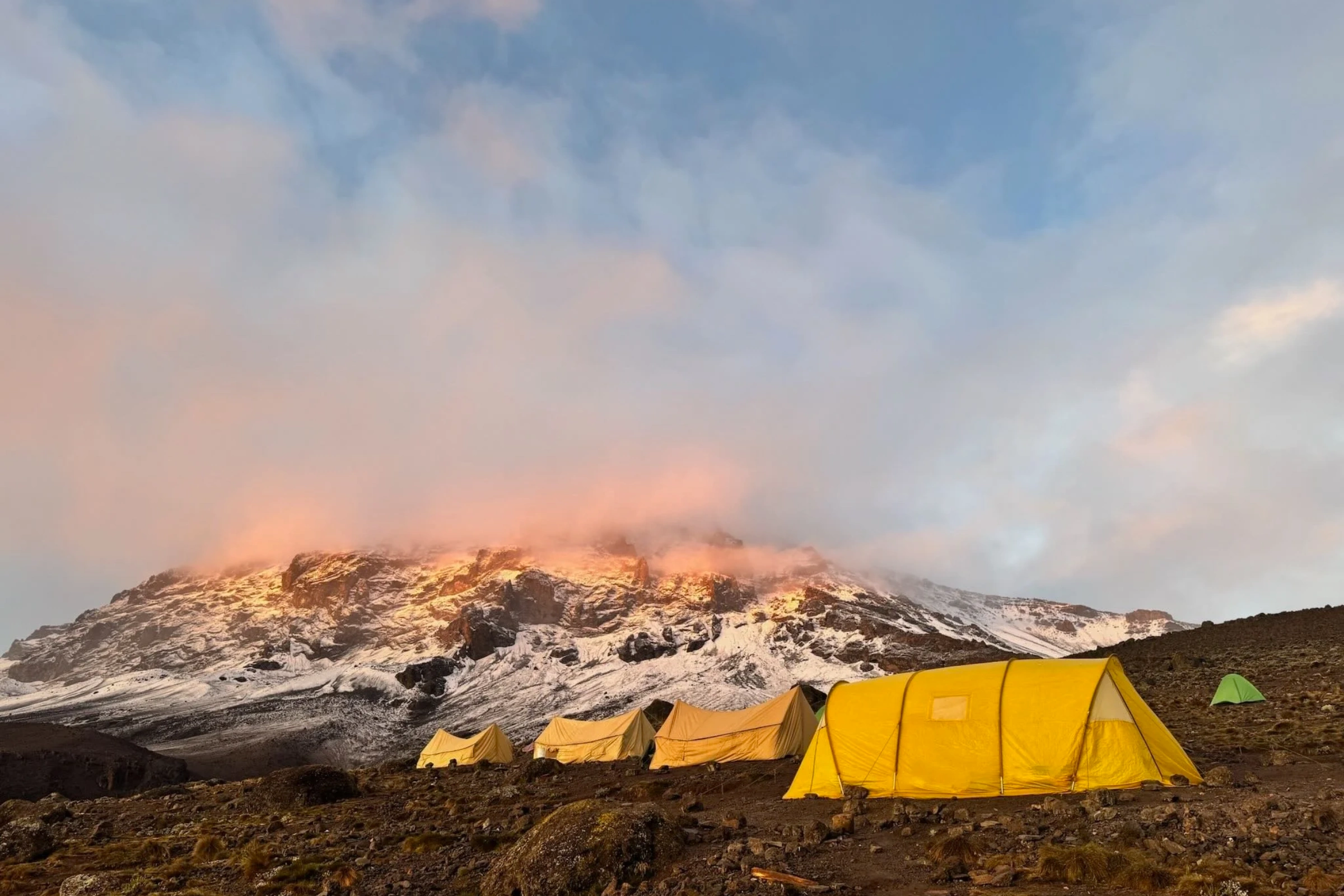- ATOL protected
- Free cancellation
- Customisable trips
- Prices incl.flights

Kilimanjaro climbing foods are planned to keep trekkers energized at high altitude. Expect hearty breakfasts, filling lunches, and warm dinners with soups, fresh fruits, vegetables, proteins, and carbohydrates, ensuring balanced nutrition for stamina, recovery, and comfort throughout your mountain adventure.
Climbing Kilimanjaro is no small feat—it’s physically intense, and your body burns calories fast. Nutritious, high-carb meals like pasta, rice, and porridge are essential fuel. They keep your energy steady, helping you power through steep ascents, long trekking hours, and cold mountain nights with strength and determination.
Proper nutrition and hydration can make a big difference in how your body handles the Kilimanjaro High Altitudes. Drinking enough water and eating well helps reduce the risk and symptoms of altitude sickness, such as headaches or nausea, giving your body the best chance to adjust and push toward the summit.
At high altitudes, your body dehydrates quickly than you might expect. You lose water through breathing, sweating, and dry mountain air. Staying hydrated—about 3–4 litres a day—is crucial. It helps prevent fatigue, headaches, and confusion, allowing you to enjoy the climb and stay mentally sharp and physically strong.

After hours of trekking, your muscles crave nourishment. Evening meals filled with protein, veggies, and carbs help repair tissue, restore energy, and reduce soreness. Proper recovery through food ensures you wake up stronger, more refreshed, and ready to tackle the next day’s climb with confidence and resilience.
Food and water are your engine and oil. Hydration keeps muscles functioning, joints lubricated, and circulation steady. Balanced meals packed with nutrients give you the endurance and stamina needed to hike for hours. When your body is fuelled right, your performance improves—and every step feels more manageable.
Trekking Kilimanjaro is as much a mental journey as a physical one. Good food and hydration boost your mood, improve sleep, and help you stay focused and upbeat. When your body feels nourished and cared for, it’s easier to enjoy the breathtaking views and unforgettable moments along the way.
Meals are designed to be filling, nutritious, and energy-rich. Expect porridge, soups, pasta, stews, vegetables, and fresh fruits. Higher-end climbs may also offer gourmet touches and a wider variety of ingredients.
Yes. All meals are prepared by trained mountain chefs using purified water and fresh ingredients. Hygiene standards are carefully maintained to prevent illness and ensure climbers stay healthy.
Absolutely. Energy bars, trail mix, and electrolyte packets are great for extra fuel between meals. Pack your favourites—just make sure they’re lightweight and easy to carry.
Yes—meals are planned to meet the calorie demands of trekking at altitude. You’ll likely eat more than usual, especially on summit night, when your body burns through energy reserves fast.
Kilimanjaro Travel Guide offers tips on routes, seasons, gear, safety, and preparation. Plan your trek confidently to conquer Africa’s highest peak and enjoy an unforgettable adventure.

We are a tour company offering personalized safari tours & local excursions in Tanzania.
Have a positive impact on Kilimanjaro by supporting conservation efforts and protecting natural habitats.
Elevate your Kilimanjaro experience with expert guides, cultural insights, and eco-friendly practices.
Get closer to Kilimanjaro’s wildlife and communities through immersive, responsible trekking adventures.
Plan your dream Tanzania adventure with our knowledgeable team, ready to guide you through safaris and climbs with expert care.
